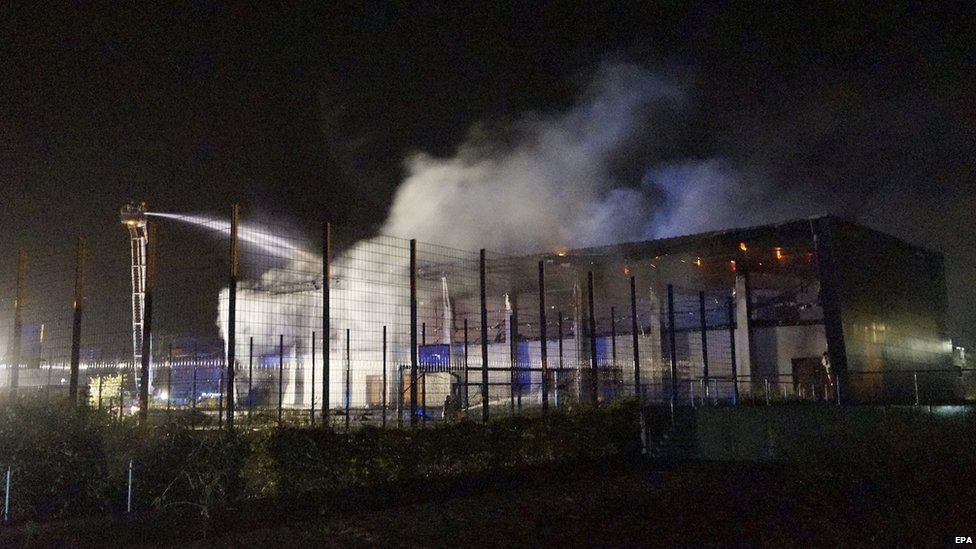Far-right German politician convicted for refugee shelter arson
- Published

A far-right German politician has been sentenced to eight years in prison for burning down a sports hall that was to be used to accommodate refugees.
Maik Schneider, a local National Democratic Party (NPD) politician, was convicted of arson by a Potsdam court.
He was given an additional 18-month prison term for other offences.
The hall in Nauen, just west of Berlin, was burnt down in August 2015 as large numbers of asylum seekers arrived in Germany.
No one was injured in the blaze but the hall was completely destroyed, with the cost of the damage estimated at €3.5m (£3m).
An accomplice, who was not identified by the DPA news agency, was given a seven-year term, while four others were given suspended sentences of varying lengths.
During the trial, 29-year-old Schneider had claimed that he was trying to send a political message but had not meant to burn down the building.
He also denied that he had acted out of xenophobic motives.
Many Germans consider the NPD, which has 5,000 members, to be a neo-Nazi group.
Campaigning with Germany's 'neo-nazi party'
Judge Theodor Horstkotter said Schneider and his accomplices had clearly acted on right-wing extremist beliefs.
"The attack was meant to signal to refugees: you are not welcome here, we don't have space for you, you aren't safe here," he said.
German Chancellor Angela Merkel's office describes the NPD as an "anti-democratic, xenophobic, anti-Semitic, anti-constitutional party".
The six men prosecuted are reported to have previously committed other crimes, including setting fire to the car of a Polish citizen.
Last month Germany's Federal Constitutional Court rejected a historic attempt to ban the NPD. The case was brought by the state governments represented in the upper house of parliament, the Bundesrat.
The court ruled that the party did not have the potential to overthrow democracy in Germany.
- Published17 January 2017
- Published9 February 2017
- Published25 August 2015